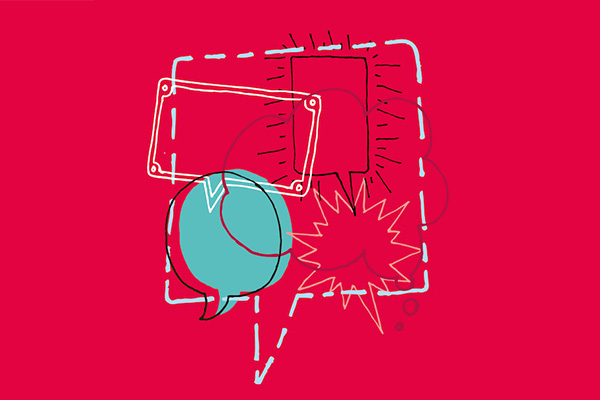It is not often that service users and practitioners alike are scrambling for copies of the same academic publication. Professor Joanne Neale, Dr. Sarah Nettleton and Dr. Lucy Pickering have produced a piece of work that captures the ‘The everyday lives of recovering heroin users’ through interviews with forty men and women in varying stages of recovery from heroin use. The book illuminates the mental, physical and emotional struggles and transformations someone might go through in recovery using the words of those with first-hand experience.
In July we published this fantastic contribution to UK recovery research and hosted a launch event in the RSA Vaults. Shortly afterwards we welcomed Prof. Neale to West Kent to open the RSA’s Whole Person Recovery Public Events Programme. RSA Fellows, CRI practitioners and service users gathered to hear Prof. Neale speak on what many of the research participants described as their ultimate goal of recovery – to feel ‘normal’ again. The book itself explores this idea through the lens of the common physiological changes a person experiences in recovery. Through a growing body of evidence and a focus on recovery we are now beginning to understand the social processes involved in recovery and what it means to recover. This approach lends a human face to what has otherwise been marginalised by punitive and medical responses to addiction that often leave service users feeling disempowered.

This book is a piece of academic research and so much more. It is presented primarily through quotes from interviews with the study participants, once again letting those with first-hand experience tell their own stories and guide the research. It offers something for the practitioner, the student, the recoveree, the supporter, the neighbour, and the commissioner. It is therefore relevant and accessible to the very people who are on the ground living and supporting recovery and exemplifies recent policy shifts from what Arnstein's ladder of participation characterises as manipulation, to collaboration. The scope and focus of the research recognises that recovery from problematic drug and alcohol use affects everything from sleep patterns, family relationships, libido, appetite and diet, daily hygiene, etc. etc. It is therefore a highly personalised, human and social experience and one that cannot be rigidly defined or prescribed.
The Whole Person Recovery Programme is founded on the recognition that recovery is personal and holistic. The original research in West Sussex was centred on meaningful service-user involvement and tapped into a wealth of knowledge and experience that we believe points the way to developing an environment in which more people can sustain their recovery and influence the role of public services. Inspired by the author’s approach and Professor Neale’s visit to West Kent, the Whole Person Recovery team launched a project in a similar vein at a workshop before the lecture. The ‘What’s your story?’ project was launched with a dynamic group discussion of personal experiences of the things covered in the book. Afterwards, Katie Gibbs, a nurse at CRI in Maidstone said ‘I really appreciated having that protected time to talk to clients about these kinds of issues’ and put her experience immediately into practice by collecting toiletries from co-workers that can be given out to clients who might need a toothbrush, shampoo, shower gel, even just a bar of soap.
I really appreciated having that protected time to talk to clients about these kinds of issues.
The ‘What’s Your Story?’ project will continue to gather stories of recovery in any means of expression and from anyone touched by recovery through workshops with photographers, painters, writers, musicians, etc. The collected work will form an exhibition curated by volunteers in recovery that will be shown across West Kent and perhaps beyond, broadening the exposure – and perhaps even the contagion - of recovery.
Informing and engaging wider communities is an important aspect of the Whole Person Recovery Programme. Addiction and recovery do not occur in isolation and building support networks must be collaborative and cooperative. Heroin users rarely have an opportunity to tell their own stories and ‘The everyday lives of recovering heroin users’ provides insight into real experiences of recovery and could guide what support services and communities can improve on and provide. Instead of the pity, reproach, condescension and manipulation people in addiction and recovery often experience, in this book they are presented as whole people with families, jobs, friends, pasts and hopes for the future.
Download a copy of ‘The everyday lives of recovering heroin users
If you would like to submit a testimonial or get in contact with the authors click here or email recovery@rsa.org.uk
Related articles
-
Blog: Let's get down and talk dirty
Steve Bodycomb
How language can to used to help or hinder a person's recovery journey from substance and alcohol misuse
-
Blog: The language of Pain
Steve Bodycomb
How language and art can be used to help diagnosis and treatment of medical conditions
-
‘One Love’ – America’s new million dollar industry
Mark Newman
Legal marijuana is sweeping across the US and a market for drugs tourism is emerging in its wake.



Join the discussion
Comments
Please login to post a comment or reply
Don't have an account? Click here to register.
The more of this kind of research and evidence the better! A fascinating and uplifting piece of work.
Diana Powell